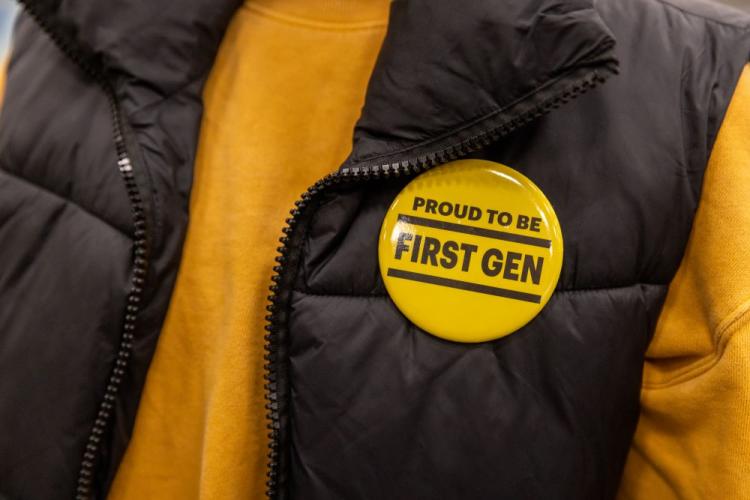

Caroline Waldbuesser
Assistant Teaching Professor, Course Director for Public Speaking
First-generation students — whose parents or guardians do not have a college degree — can face challenges in navigating campus life and accessing essential resources. In the Department of Communication, instructors bring innovative, thoughtful approaches to foster success and belonging for this unique group of students.
Caroline Waldbuesser, assistant teaching professor and course director for Mizzou’s widely accessed public speaking course, leads an initiative designed to bridge these gaps and ensure every student is supported.
A key strategy for communication instructors is embedding resource awareness in their course instruction. Public speaking instructors and faculty across the department ensure that students can access vital campus resources and services with this practice by featuring them during class. This approach helps demystify the services available to Mizzou students and addresses what Waldbuesser calls the “you don’t know what you don’t know” challenge — a common experience for first-gen students unfamiliar with higher education systems.
“For example,” says Waldbuesser, “students might assume they can’t afford mental health services at Mizzou and not seek them out. We want to make sure students know that’s not the case,” she continued, explaining that counseling services are among many health and well-being resources already covered by the Student Health Fee and Student Activity Fee.
Alongside counseling, Waldbuesser is particularly passionate about the positive impact of the Mizzou Writing Center on student success. Open to all Mizzou students, the Writing Center provides free support through in-person, Zoom, and online services, offering tailored feedback on any stage of the writing process.
“Depending on a person’s high school experience,” said Waldbuesser, “they may find undergraduate writing assignments challenging or even overwhelming.”
The initiative also helps instructors face the “you don’t know what you don’t know” challenge by empowering them to connect their students with appropriate resources. Instructors are equipped with an easy-to-reference document that lists services such as the Tiger Pantry, Disability Center, and the Student Success Center that may be outside instructors’ scope of experience and expertise.
“We really want to make these tools visible and accessible to all of our students,” says Waldbuesser, “to help them fully engage with their college experience while equipping all learners with knowledge that fosters resilience and success.”